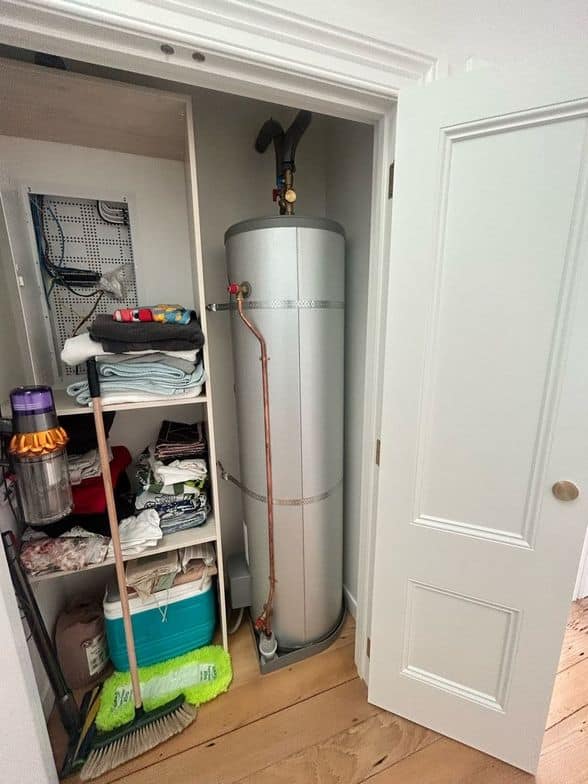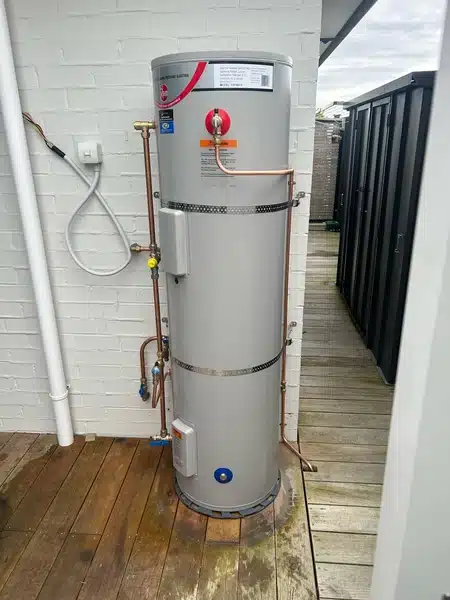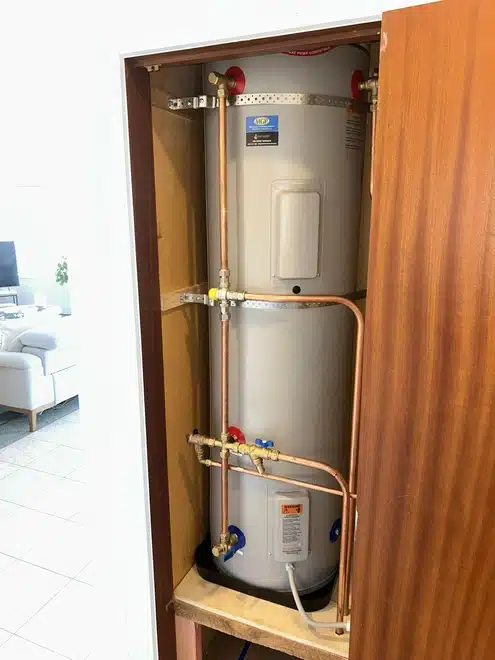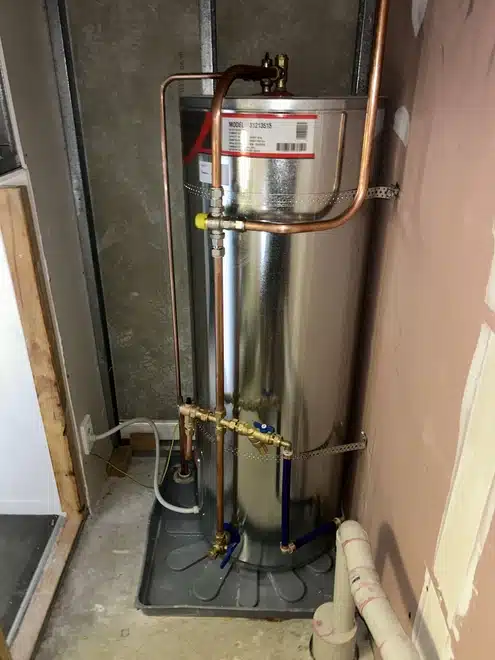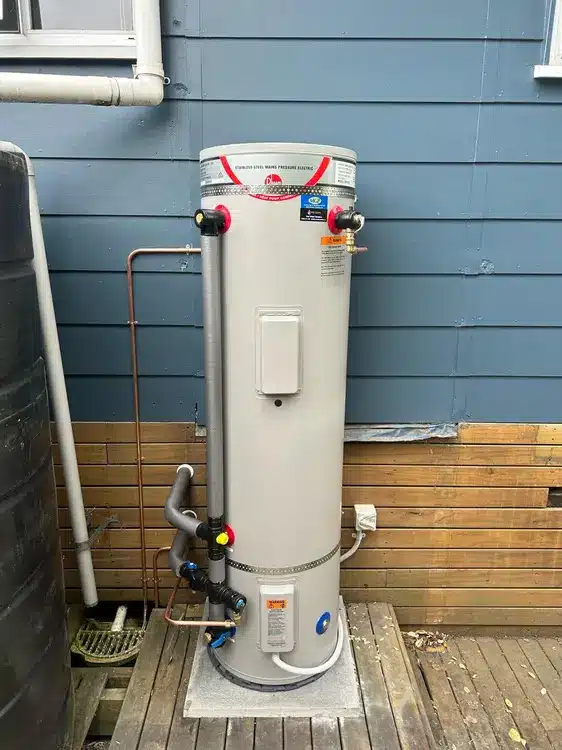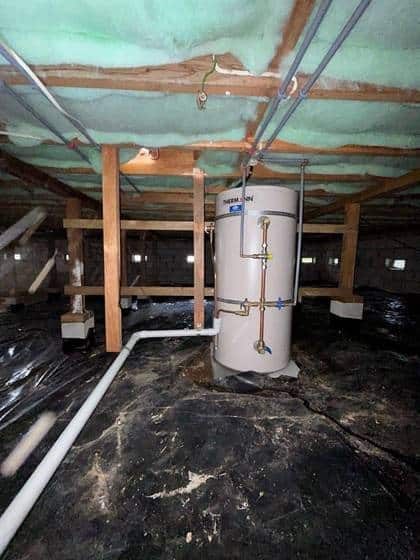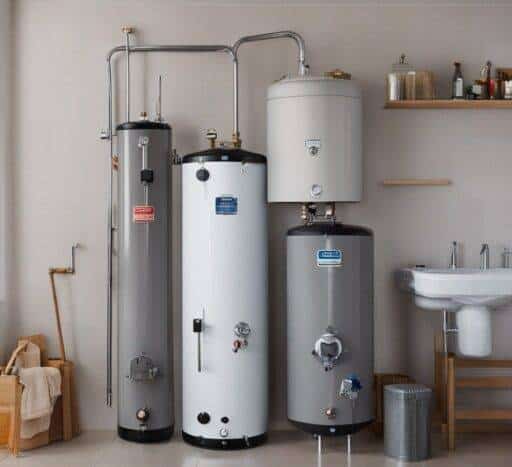Hot Water Cylinder Lifespans
Cylinders last between 8 to 12 years on average with electric models trending toward 10 years, while gas-fired cylinders often outlast at the higher end nearing 15 years. Of course, careful owners can extend cylinder functioning further through proper maintenance like periodic flushes and anode rod replacements which control corrosion.
Usage patterns also impact longevity greatly. Households with more occupants showering longer daily reduce overall system life. While no definitive expiration date applies across brands and models, the 8 to 15-year range serves as reasonable service expectation.
When Maintenance Stops Extending Useful Life
Initially, systems lose efficiency and output temperature as internal sediment accumulation and wall corrosion escalates. During these periods of decline, technicians perform tune-ups aimed at restoring heating capacity and lifespans through cleaning and new anode rods controlling rust.
But over time, persistent component degradation and weakened integrity inevitably reach failure points. No amount of servicing can then resurrect a cylinder nearing two decades old still pressurised with hot water daily. Replacement becomes a necessity.
Signs Your Cylinder Needs Replacing Soon
Warning signs suggest your water heating cylinder requires replacement. Consider exchanging your unit if:
Lacking Hot Water Output – If unable to heat water adequately across uses no matter adjusting the thermostat higher, internal components degraded beyond repair.
Leaking or Low Water Pressure – External corrosion or internal valve issues cause visible water pooling underneath or sends pressure plummeting requiring re-pressurization.
Over 15 Years Old – Systems older than traditional lifespan estimates operate dangerously from corrosion and sediment buildup nearing failure.
Strange Sounds – Knocking pipes or loud “bangs” indicate pressure spikes signaling imminent breakdown risk from excess wears.
High Energy Bills – Inefficient cylinders cost more monthly to achieve less output constantly struggling to maintain temperature due to contamination issues.
Anode Inspections Show Excess Corrosion – When removed during maintenance, corroded anode rods indicate accelerated cylinder decay from aggressive water composition.
Develop a Proactive Replacement Plan
Rather than wake up to cold showers one morning thanks to unanticipated cylinder failure surprises, smart homeowners monitor systems for developing issues over their lifespan and prepare replacement budgets ahead of time. During years nearing the average service ceiling, increase inspection frequency biannually while gathering replacement quotes to determine ideal capacity ratings, fuel source types, tank warranty durations, and installation pricing.
When pesky leaks arise or output temperatures decline faster between maintenance procedures, the replacement plan is set in motion. Order long lead equipment for the install in advance so that transition from the old cylinder occurs smoothly on your timeline. Don’t endure the headaches of emergency situations or paying premium costs thanks to a reactive approach. Plan properly for an upcoming switch to a brand new hot water cylinder keeping comforts flowing for the next decade or more.
Leverage Professional Assessment Guidance
For homeowners unsure about replacement necessity when cylinders reach questionable ages, regional specialists offer tailored inspections detailing equipment functionality. Qualified technicians examine overall system integrity while testing heating elements, anode deterioration, pressure valve calibration, and flow rate output. Reports indicate how much usable lifespan potentially remains along with upgrade or repair options that might buy additional years should full replacement break the budget currently. Trusted partners like Hot Water Solutions deliver this assessment guidance to inform owner decisions.
Install Better Technology Upfront
When selecting a replacement hot water cylinder, defaulting back to outdated electric units wasting energy or basic gas models costs more over their lifecycle. Instead, view the impending swap as a prime opportunity to upgrade household functionality leveraging newer heat pump and solar thermal technologies that save substantially on heating costs for years while minimising environmental impact through sustainable designs. Contact regional installers for details on motive options and potential subsidies when transitioning to eco-friendly systems.
Maintain Your New Cylinder Properly
Once your new energy-efficient heat pump or solar-enhanced hot water cylinder starts delivering comforts and savings, ensure longevity through proper use and maintenance. Follow manufacturer guidance on adequate sizing for household occupancy needs to prevent premature wear through overtaxed flow demands. Insulate inlet and outlet pipes vulnerable to cool airflow causing output temperature dips.
Check and clear exterior ventilation screens monthly so heat pumps run efficiently. Avoid chemical cleaners in solar collector loops that might corrode seals. Consider signing a maintenance plan for anode rod inspections and flushes removing accumulation annually. Small operating tweaks like lowering water pressure or adjusting thermostats during winter and summer optimise new systems. Protect your investment through responsible equipment stewardship. New cylinders functioning optimally for a decade means enjoying endless hot water.
Final Words
While daunting when that faithful old cylinder finally retires, replacements made easier through informed decisions, proactive planning, and upgrades embracing the latest innovations. Trusted regional specialists educate clients appropriately at each step so continuous hot water convenience powers household comfort.
Use our contact us page to reach us and we will be more than happy to discuss your hot water situation. Or give us a call on 0800 497658.
At Hot Water Solutions all we do is hot water.

